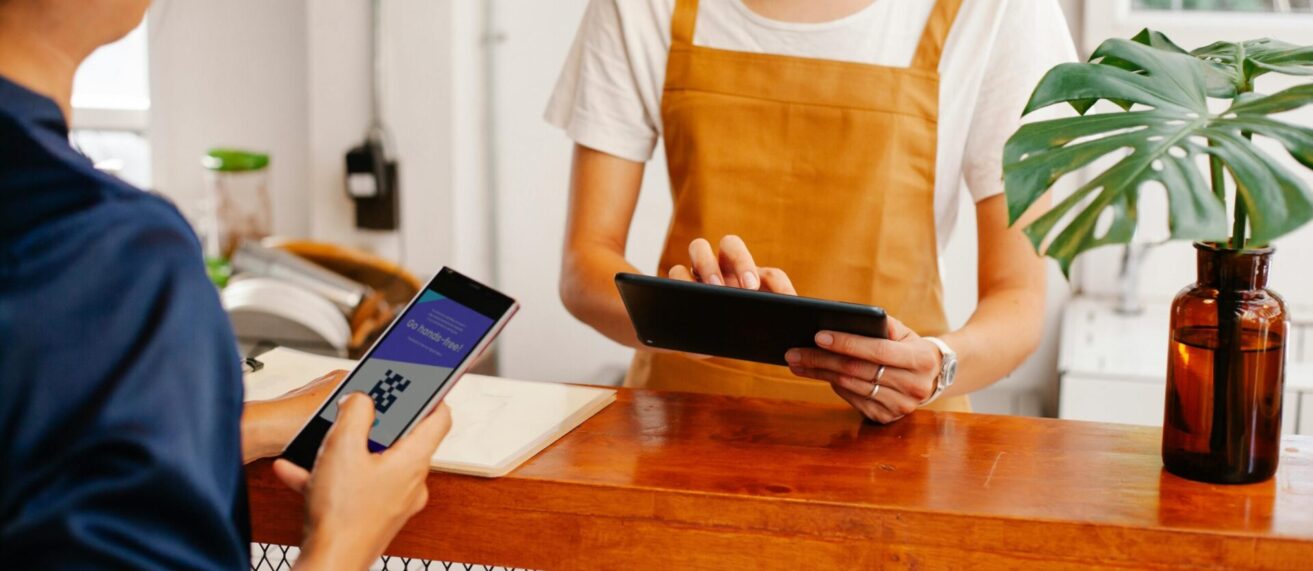
Nutrahara Blog
Nutrahara Blog
Women’s Health in the Digital Age
1. Telehealth for Women – Introduction
The digital age has brought about significant changes in how we approach health and wellness. For women, technology has opened new avenues for monitoring health, accessing medical care, discovering supplements, and finding support. From health-tracking apps, such as Femtrack from Nutrahara that monitor menstrual cycles and fitness levels to telemedicine platforms that provide virtual consultations with healthcare professionals, the digital revolution is reshaping the landscape of women’s health. However, along with these benefits come challenges that must be navigated carefully to ensure optimal outcomes.
2. The Rise of Telehealth-Tracking Apps
Benefits of Health-Tracking Apps
Health-tracking apps have surged in popularity, offering a convenient way for women to monitor various aspects of their health. These apps can track menstrual cycles, fertility, fitness, nutrition, sleep patterns, and mental health. Here are some key benefits:
- Personalized Health Insights: Health-tracking apps provide personalized data, helping women understand their unique health patterns and make informed decisions.
- Convenience: With a smartphone in hand, women can track their health anytime, anywhere.
- Goal Setting and Motivation: Many apps offer goal-setting features and reminders, which can motivate users to stay on track with their health and fitness objectives.
- Early Detection of Health Issues: Regular tracking can help identify unusual patterns or symptoms early, prompting timely medical consultations.
- Holistic Health Management: These apps often integrate multiple health aspects, offering a comprehensive view of overall wellness.
Drawbacks of Telehealth-Tracking Apps
Despite the numerous benefits, there are also potential drawbacks to consider:
- Data Privacy Concerns: Storing sensitive health information on digital platforms raises privacy and security issues.
- Accuracy of Data: The accuracy of self-reported data and app algorithms can sometimes be questionable.
- Dependency and Anxiety: Over-reliance on tracking apps can lead to anxiety and stress, especially if users become obsessed with the data.
- Information Overload: The sheer volume of data available can be overwhelming, making it difficult to focus on what’s truly important.
7 Tips for Choosing the Right Health-Tracking App
- Check Reviews and Ratings: Look for apps with high ratings and positive reviews.
- Verify Data Security: Ensure the app has strong privacy policies and data security measures.
- Assess Usability: Choose an app that is user-friendly and easy to navigate.
- Consider Compatibility: Make sure the app is compatible with your device and any other health gadgets you use.
- Evaluate Features: Select an app that offers the specific features you need.
- Trial Period: Opt for apps that offer a free trial period to test out their functionalities.
- Consult Healthcare Providers: Get recommendations from healthcare professionals to ensure the app meets medical standards.
3. Telemedicine: Revolutionizing Healthcare Access
Benefits of Telemedicine
Telemedicine has revolutionized access to healthcare, providing numerous advantages, particularly for women with busy schedules or limited access to healthcare facilities:
- Convenience and Accessibility: Telemedicine allows women to consult with healthcare providers from the comfort of their homes, eliminating the need for travel.
- Time-Saving: Virtual appointments save time, making it easier to fit healthcare into a busy lifestyle.
- Wider Access to Specialists: Telemedicine can connect patients with specialists who may not be available locally.
- Continuity of Care: Virtual visits facilitate continuous care, especially for chronic conditions or ongoing treatments.
- Reduced Exposure to Illness: During pandemics or flu seasons, telemedicine reduces the risk of exposure to contagious diseases.
Challenges of Telemedicine
While telemedicine offers many benefits, it also comes with challenges:
- Technology Barriers: Not all patients have access to reliable internet or devices necessary for telemedicine.
- Lack of Physical Examination: Some conditions require a physical examination, which is not possible through virtual consultations.
- Privacy Concerns: Ensuring the confidentiality of virtual consultations can be challenging.
- Insurance Coverage: Not all insurance plans cover telemedicine services, potentially leading to out-of-pocket expenses.
- Technical Issues: Connectivity problems and technical glitches can disrupt virtual consultations.
5 Ways to Make the Most of Your Telehealth Appointment
- Prepare in Advance: List your symptoms, questions, and any relevant medical history beforehand.
- Check Your Technology: Ensure your device and internet connection are working properly before the appointment.
- Choose a Quiet Location: Find a quiet, private place for your consultation to minimize distractions.
- Be Honest and Detailed: Provide as much detail as possible about your symptoms and concerns.
- Follow Up: Schedule follow-up appointments if necessary and keep your healthcare provider updated on your condition.
4. Online Support Communities
Benefits of Online Support Communities
Online support communities offer a valuable resource for women seeking advice, encouragement, and connection with others facing similar health challenges:
- Emotional Support: Connecting with others who understand your experiences can provide emotional comfort and reduce feelings of isolation.
- Shared Knowledge: Community members often share valuable tips, resources, and personal experiences.
- Convenience: Online communities are accessible anytime, making it easy to find support when needed.
- Anonymity: The option to remain anonymous can make it easier for women to share sensitive or personal issues.
- Diverse Perspectives: These communities bring together people from different backgrounds, offering diverse perspectives and solutions.
Potential Risks and Drawbacks
However, online support communities also come with potential risks:
- Misinformation: Not all advice and information shared online is accurate or reliable.
- Privacy Issues: Sharing personal information online can lead to privacy concerns.
- Negative Interactions: Trolls, negativity, and unsupportive comments can affect mental well-being.
- Overreliance: Depending too much on online communities for medical advice can be problematic.
6 Tips for Finding and Engaging in Supportive Online Communities
- Research the Community: Look for well-moderated communities with clear guidelines and active participation.
- Check Credibility: Ensure the information shared is from credible sources or verified members.
- Be Respectful: Respect others’ opinions and experiences, even if they differ from your own.
- Protect Your Privacy: Avoid sharing sensitive personal information.
- Contribute Positively: Share your experiences and support others in a constructive manner.
- Verify Information: Cross-check any medical advice with a healthcare professional.
5. Real-Life Testimonials
Stories from Women Who Have Benefited from Digital Health Tools
Sarah’s Story: Embracing Health-Tracking Apps
Sarah, a 32-year-old marketing professional, struggled with irregular menstrual cycles for years. After downloading a menstrual tracking app, she began to notice patterns and identify triggers that affected her cycle. “The app not only helped me track my periods but also provided insights into my overall health. I could correlate my mood swings, energy levels, and even diet with my cycle,” Sarah shares. With this information, she consulted her gynecologist, who was able to provide more targeted advice, and treatment.
Emily’s Experience with Telemedicine
Emily, a 45-year-old mother of two, lives in a rural area with limited access to healthcare facilities. When she started experiencing chronic fatigue and joint pain, she found it challenging to visit a specialist. Telemedicine changed everything for her. “I was able to schedule virtual consultations with a rheumatologist without the long drive to the city. The doctor reviewed my symptoms, recommended tests, and even guided me through physical therapy exercises online,” Emily explains. Telemedicine allowed Emily to receive the care she needed without disrupting her family life.
Linda’s Journey with Online Support Communities
Linda, a 28-year-old graphic designer, was diagnosed with polycystic ovary syndrome (PCOS). Feeling isolated and overwhelmed, she turned to online support communities. “Finding a group of women who were going through the same struggles was a game-changer. We shared tips, recipes, and even exercise routines that helped manage PCOS symptoms. The emotional support was incredible, and it made me feel less alone,” Linda says. The online community provided Linda with both practical advice and emotional support, significantly improving her quality of life.
6. Conclusion
Technology has undeniably transformed women’s health in the digital age, offering innovative tools and resources that empower women to take charge of their well-being. Health-tracking apps provide personalized insights, telemedicine enhances access to healthcare, and online support communities offer emotional and practical support. However, it’s essential to navigate these digital health tools wisely, considering potential drawbacks such as data privacy concerns, accuracy issues, and the risk of misinformation.
By leveraging the benefits and mitigating the challenges, women can make the most of the digital age’s advancements. Whether it’s through using health-tracking apps to monitor their menstrual cycle, engaging in telemedicine for convenient healthcare access, or finding support in online communities, technology offers a wealth of opportunities to enhance women’s health. The key is to stay informed, explore various resources, make smart choices, and seek professional guidance when necessary.
Written by the Nutrahara Team
This article was prepared by the expert team at Nutrahara, which includes experienced nutrition scientists and naturopaths dedicated to advancing women’s health through natural wellness solutions. We combine scientific research with holistic practices to help you live your healthiest life. Connect with us on LinkedIn to stay updated on the latest in women’s health and wellness.









